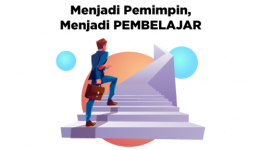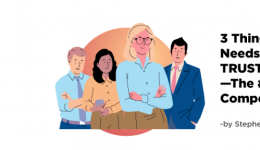Membangun Tim Untuk Beradaptasi : Bagaimana BPD Berperan serta dalam Pembangunan Daerah
Membangun Tim Untuk Beradaptasi: Bagaimana BPD Berperan serta dalam Pembangunan Daerah (Khusus BPD)
23 April 2021 | 14.00 – 15.30 | Free of Charge
Budi Aryanto, Facilitator, Dunamis Organization Services
Target Peserta: Kepala Divisi, Wakil Kepala Divisi, Kepala Seksi Bank Pembangunan Daerah (BPD)
![[Dunamis]-Web-Banner-Template-550-x-550-px-(BPD-Webinar-Tim-Beradaptasi)](https://www.dunamis.co.id/wp-content/uploads/2021/04/Dunamis-Web-Banner-Template-550-x-550-px-BPD-Webinar-Tim-Beradaptasi.png)
Kemampuan beradaptasi setiap tim menentukan keberhasilan sebuah organisasi menghadapi perubahan. Pemimpin sangat berperan penting dalam membawa setiap tim untuk beradaptasi terhadap situasi apapun.
Saatnya Pemimpin terus membangun kemampuan dan kebiasaan beradaptasi dari setiap anggota yang dipimpinnya agar dapat menghadapi setiap tantangan yang muncul. Mampu meningkatkan kinerja organisasi dan berkontribusi bagi Pembangunan Daerah.
Seberapa penting kemampuan adaptasi tim bagi peningkatan kinerja? Bagaimana peran pemimpin dalam membawa anggota timnya beradaptasi terhadap perubahan?
Temukan kunci rahasia memampukan tim untuk beradaptasi dan memperluas kontribusi BPD untuk pembangunan daerah dalam webinar ini.
Setelah mengikuti webinar ini, peserta akan:
- Memahami cara pemimpin berkontribusi dalam membangun organisasi unggul ditengah perubahan bersama anggota tim.
- Mampu mengkomunikasikan tujuan tim agar tim mudah beradaptasi terhadap perubahan.
- Memahami pentingnya melakukan coaching untuk mengembangkan kemampuan dan kinerja tim sehingga dapat mendukung pembangunan daerah
Dunamis sebagai Partner Bank Pembangunan Daerah dalam membangun sinergi antara pimpinan dan anggota tim sehingga mampu mencapai target dan mengerakkan perekonomian daerah mengundang Anda dalam Dunamis Webinar BPD Series dengan tema “Membangun Tim Untuk Beradaptasi: Bagaimana BPD Berperan serta dalam Pembangunan Daerah” pada Jumat 23 April 2021 jam 14.00 – 15.30.
Untuk informasi lebih lanjut, silakan hubungi 0812 9863 9739 atau hubungi Relationship Manager yang membantu Anda.




![[Dunamis]-Web-Banner-Template-550-x-550-px-(Edu-Webinar-7-Habits-College-Students)](https://www.dunamis.co.id/wp-content/uploads/2021/04/Dunamis-Web-Banner-Template-550-x-550-px-Edu-Webinar-7-Habits-College-Students.png)
![[Dunamis]-Web-Banner-Template-550-x-550-px-(BPD-Webinar-Menghadapi-Perubahan)](https://www.dunamis.co.id/wp-content/uploads/2021/04/Dunamis-Web-Banner-Template-550-x-550-px-BPD-Webinar-Menghadapi-Perubahan.png)

![[Dunamis]-Web-Banner-Template-550-x-550-px-(Edu-Webinar-Trusting-Relationship)](https://www.dunamis.co.id/wp-content/uploads/2021/03/Dunamis-Web-Banner-Template-550-x-550-px-Edu-Webinar-Trusting-Relationship.png)


![[Dunamis]-Web-Banner-Template-550-x-550-px-(Edu-Webinar-Sukses-di-Masa-Muda)](https://www.dunamis.co.id/wp-content/uploads/2021/03/Dunamis-Web-Banner-Template-550-x-550-px-Edu-Webinar-Sukses-di-Masa-Muda.png)
![[Dunamis]-Web-Banner-Template-550-x-550-px-(Edu-SOV-Social-Emotional-Development)](https://www.dunamis.co.id/wp-content/uploads/2021/03/Dunamis-Web-Banner-Template-550-x-550-px-Edu-SOV-Social-Emotional-Development.png)